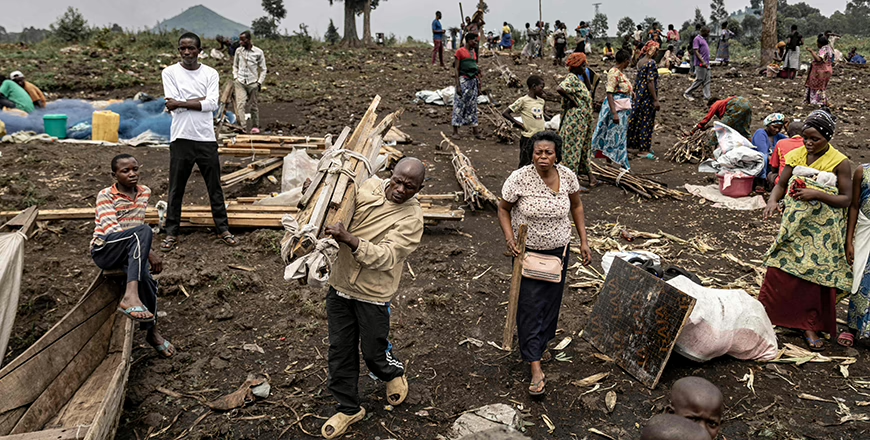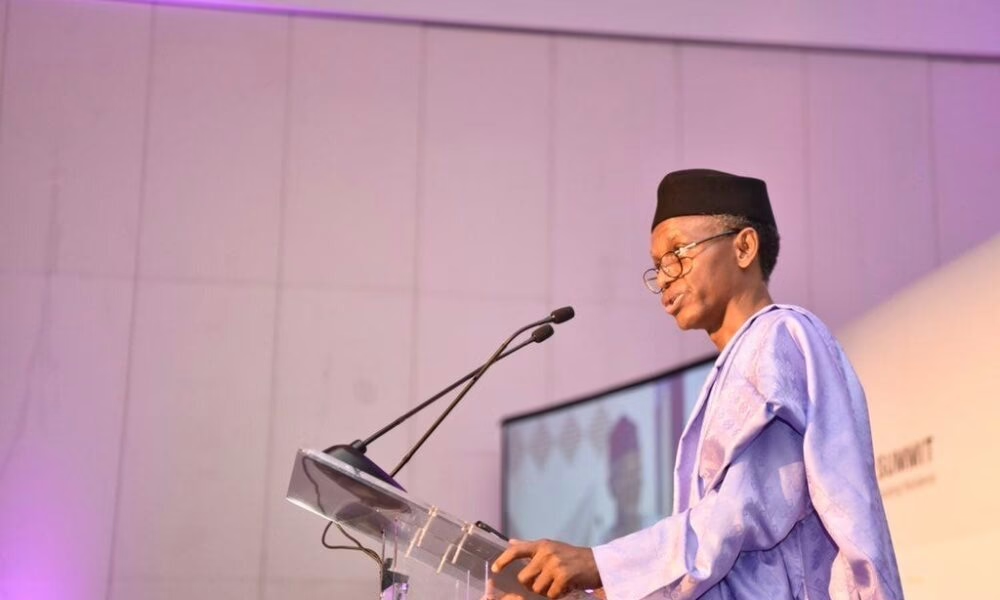The cost of basic energy for cooking, such as Liquefied Petroleum Gas (LPG), more commonly known as cooking gas, has been steadily increasing in Nigeria.
For many Nigerians, this escalating cost poses a severe threat to household budgets already stretched thin by inflation, rising food prices, and declining purchasing power.
In September 2024, the National Bureau of Statistics (NBS) released a report that highlights the significant rise in the price of cooking gas, with a 4.89% increase for a 12.5kg cylinder compared to August 2024.
The figures are alarming, but even more concerning are the broader implications for consumers across markets.
The NBS report, which closely tracks cooking gas prices, revealed that in September 2024, the average retail price for refilling a 12.5kg cylinder of cooking gas jumped from ₦15,552.56 in August to ₦16,313.43, marking a 4.89% increase. Compared to September 2023, the year-on-year increase is a staggering 76.41%, from ₦9,247.40 to ₦16,313.43. Similarly, a 5kg cylinder saw a month-on-month increase of 4.19%, rising from ₦6,430.02 in August to ₦6,699.63 in September. On a year-on-year basis, the price of a 5kg cylinder skyrocketed by 59.90%, up from ₦4,189.96 in September 2023.
These figures provide an empirical snapshot of what many Nigerian households experience daily: cooking gas prices are rising steadily, adding pressure to family budgets.
This inflation, especially in essentials like cooking fuel, affects household choices, health, and quality of life. As market analysis indicates, there are regional disparities in these prices, with some states bearing a more significant burden than others. For instance, Rivers State recorded the highest average price for a 5kg cylinder at ₦7,285.71, followed by Gombe at ₦7,271.88 and Borno at ₦7,089.72. On the other hand, Kebbi State recorded the lowest price at ₦5,950.00.
In a conversation with Mrs. Joy Okonkwo, a mother of three and resident of Ogba in Lagos, she lamented the situation: “I used to refill my 12.5kg cylinder with ₦9,000 last year. Now, I pay over ₦16,000, and my salary hasn’t increased. It is becoming impossible to keep up with these prices.”
Her sentiment is echoed by many Nigerians who find the cost of cooking fuel spiraling out of control.
There are multiple factors contributing to the surge in cooking gas prices. First and foremost is the global price of LPG, which has seen significant volatility due to fluctuations in international markets.
However, local factors also play a significant role. Nigeria, despite being a major oil-producing nation, relies on imports to meet its LPG demand.
The depreciation of the naira against the U.S. dollar, compounded by rising shipping and distribution costs, has also exacerbated the situation.
Furthermore, the lack of adequate domestic refining capacity has left Nigeria vulnerable to global market shifts.
Dr. Ibrahim Musa, an economist and energy policy expert, points out: “Nigeria’s dependence on imported cooking gas, combined with the persistent depreciation of the naira, means that price shocks in the global market are immediately felt by Nigerian consumers. Until we significantly boost our local refining capabilities, these increases will continue.”
The data shows significant regional disparities in cooking gas prices across the country. States like Rivers, Gombe, and Zamfara recorded the highest prices for a 12.5kg cylinder at ₦17,992.86, ₦17,942.86, and ₦17,475.00, respectively. Meanwhile, Adamawa had the lowest price at ₦13,983.33, followed by Nasarawa and Bauchi at ₦14,938.50 and ₦15,000.00, respectively. These differences reflect varying levels of access to supply, distribution costs, and regional economic conditions.
For many low-income households, especially those in rural areas, the rising cost of cooking gas has pushed them to revert to traditional cooking methods such as firewood and charcoal.
Advertisement
These alternatives are not only more harmful to the environment but also pose significant health risks due to indoor air pollution. According to a recent survey by Clean Energy Nigeria, over 70% of rural households have switched back to these traditional fuels as cooking gas prices became unaffordable.
In Lagos, a market woman, Iya Wale, as she is fondly called, expressed her frustration: “We can’t even buy cassava, and now even cooking gas is becoming a luxury. How do they expect ordinary people to survive when everyday things get more expensive?”
To compound the problem, kerosene prices have also risen sharply, further straining household budgets. The NBS’s September 2024 “National Kerosene Price Watch” report reveals that the average retail price per liter of kerosene increased from ₦1,847.59 in August 2024 to ₦1,957.44 in September, reflecting a 5.97% month-on-month increase. On a year-on-year basis, the average price rose by 50.68%, up from ₦1,299.03 in September 2023.
Regional disparities also exist in kerosene prices, with Abuja recording the highest price at ₦2,816.67 per liter, followed by Kaduna at ₦2,437.50 and Akwa Ibom at ₦2,411.11. Bayelsa had the lowest price at ₦1,416.67, followed by Borno and Ekiti at ₦1,477.83 and ₦1,635.00, respectively.
For many Nigerian households, the combined rise in cooking gas and kerosene prices presents an unbearable burden.
As Mrs. Olabisi Adeolu, a civil servant from Ibadan, points out, “It’s not just about cooking gas or kerosene. When these basic necessities become unaffordable, everything else becomes more difficult. It’s a choice between feeding my family orkeeping the lights on.”
Given the rising prices, it is clear that the government needs to step in to mitigate the situation. One approach could be the provision of targeted subsidies for cooking gas and kerosene to protect the most vulnerable households. Another solution is increasing local LPG production to reduce dependence on imports and shield consumers from global market volatility. Improved transportation infrastructure and supply chains could also help reduce regional price disparities.
Consumer protection advocates, like Mrs. Beatrice Nwoko, emphasises the importance of government oversight: “The government must ensure that the rising prices of essential household items like cooking gas do not spiral out of control. We need stronger regulations and perhaps a return to some form of price control, at least for the most vulnerable segments of the population.”
The rising cost of cooking gas and kerosene is just one piece of the broader economic challenges Nigerian households face today. The government must act swiftly to address these price increases and protect consumers from further economic hardship. Otherwise, the escalating cost of energy, combined with food inflation and declining wages, will continue to push more Nigerians into poverty.
For consumers like Mrs. Okonkwo and Mrs. Wale, the situation is already dire. As cooking gas prices rise, so too does the cost of living, forcing many to make difficult choices about how to allocate their limited resources.
The time for action is now, before the situation becomes even more unbearable for millions of Nigerians.
As gathered by Daily Independent, the rising cost of cooking gas has become a significant burden on Nigerian households, further straining the already stretched incomes of consumers.
Over the past few months, prices of Liquefied Petroleum Gas (LPG) have skyrocketed due to a combination of factors, including global energy market fluctuations, foreign exchange challenges, and domestic supply constraints.
Many households now find it increasingly difficult to afford basic cooking fuel, pushing some to resort to traditional methods such as firewood and charcoal, which pose environmental and health risks.
For families with fixed or low incomes, the impact of the price hikes is devastating. As the cost of living continues to rise due to inflation, Nigerians are spending a larger portion of their earnings on essential items like food and cooking gas, leaving little room for other needs.
This situation has sparked concerns about the potential for social unrest, as more people find themselves unable to meet their daily needs. Local advocacy groups are calling on the government to step in and provide subsidies or policy interventions that could stabiliSe the gas market.
In response to these concerns, some industry experts argue that the government should also explore long-term solutions to enhance domestic gas production and reduce dependence on imports.
These steps, they say, could help make cooking gas more affordable and accessible to Nigerian households in the future.
Until then, the steep price of LPG continues to add to the mounting challenges faced by everyday Nigerians.











